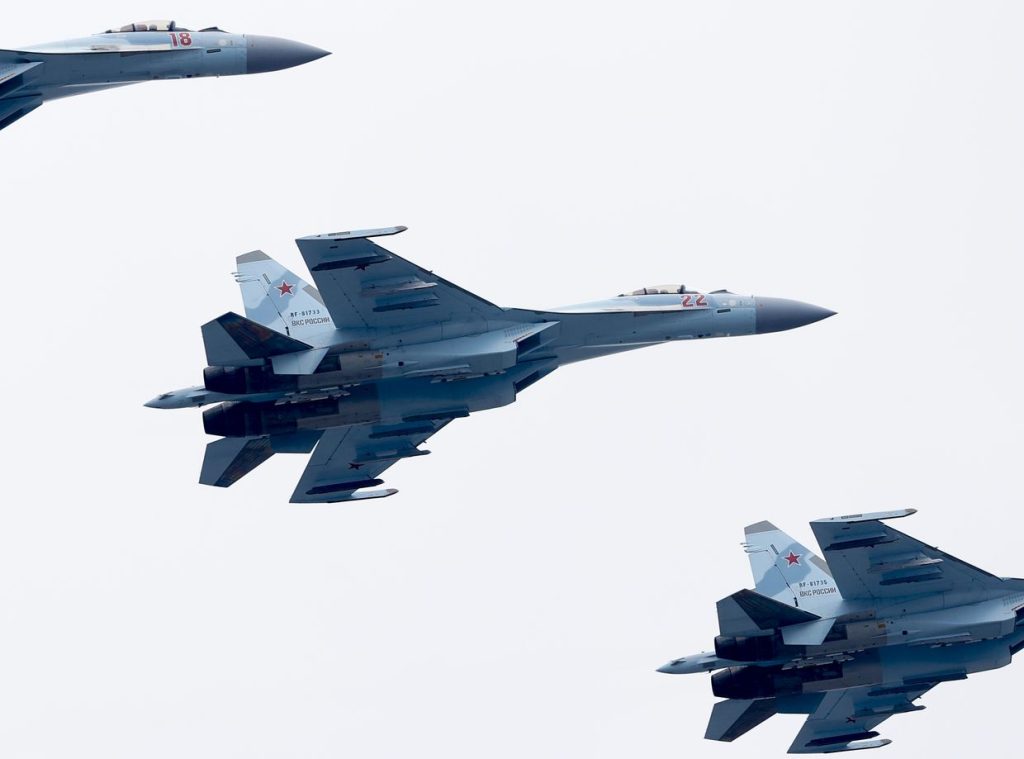A recent investigation by Radio Free Europe/Radio Liberty’s project Schemes has uncovered that over 2,000 foreign-made electronic components are allegedly present in Russian Sukhoi fighter jets, sourced primarily from Japan and the United States. The investigation, in collaboration with the Independent Commission Against Corruption, was supported by Ukrainian intelligence sources who provided a list of these foreign-made parts found in various models of Su-type fighter jets. Despite Western sanctions intended to disrupt supply lines, Russia has been able to acquire sanctioned goods like microchips through intermediary suppliers in countries such as Hungary, Cyprus, Turkey, China, and Russia, enabling their military capabilities. These components are crucial for navigation, missile guidance systems, electronic warfare, and communication systems in the aircraft.
The investigation also revealed that the Russian-based distributors linked to the military-industrial complex have managed to evade sanctions, enabling them to continue acquiring Western electronic components for their fighter jets. These components are reported to be located in the nose and middle section of the aircraft, forming the backbone of essential systems for combat operations. Russian Sukhoi jets have been actively involved in attacks on Ukraine, launching guided missiles and bombs on civilian and critical infrastructure. In response to these threats, Kyiv’s allies have taken measures to prevent the circumvention of sanctions by Russia, with the EU imposing bans on third-country entities re-exporting sensitive goods to Russia.
President Volodymyr Zelensky recently highlighted that an estimated total of 1,500 foreign-made components were used in Russian missile attacks on Kyiv, underscoring the critical role of these electronic parts in offensive operations. The ongoing conflict in Ukraine has intensified concerns about the use of advanced technology in warfare, especially when supplied by foreign sources. These revelations raise questions about the effectiveness of sanctions in curtailing Russia’s military capabilities and highlight the need for stronger enforcement mechanisms to prevent the transfer of restricted goods to sanctioned entities. As Ukraine continues to face security challenges from Russian aggression, the support for independent journalism and investigative projects like Schemes becomes crucial in exposing illicit activities and holding accountable those responsible for enabling hostile actions.
The presence of foreign-made components in Russian fighter jets not only poses a direct threat to Ukraine but also raises broader concerns about global security and the proliferation of advanced military technology. The ability of Russia to bypass sanctions and acquire vital electronic parts from third-party countries underscores the challenges faced by international efforts to restrict the flow of sensitive goods to sanctioned entities. The findings of the investigation shed light on the intricate networks involved in supplying components for combat aircraft, highlighting the need for closer scrutiny and enforcement of export controls to prevent the misuse of technology in conflict zones. By supporting initiatives that promote transparency and accountability, individuals can contribute to upholding journalistic integrity and advancing efforts to expose illicit activities that undermine peace and stability.


